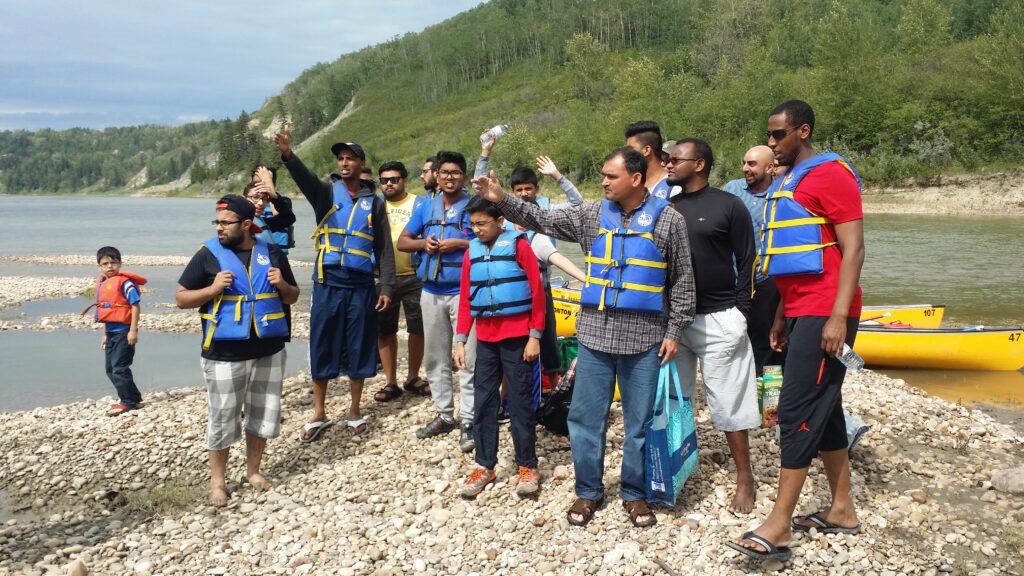
Unlock & Unleash
Unlock Islamic Excellence & Leadership
See the courses that are Aiming to provide essential Islamic understanding that primes young Muslims for success in the hereafter (insha Allah) through solving problems based on faith (amal as-saleh), community development, and transformational leadership. offered below.
Level 3 – Fundamentals

Ethics 1: Unyielding Ethics
Understanding the Quranic Objective
The course introduces the students to the fundamentals of Quranic mandate and objective to answer the question, what does God requires from us? The course explores the early revelations from the last section of the Quran (Juz ‘Amma) guiding human ethics and morality between God Consciousness (taqwa) and transgression and wickedness (tughyan).

Establishing Religious Framework
Understanding Foundations through 40 Hadith Nawawi
This course provides a comprehensive understanding of the fundamental (usul) and essential pillars and components of Islam directly through Islamic text and sources The course will provide students the ability to prioritize focus and action for the purpose of developing personal modus operandi and community leadership.

Ethics 2: Developing an Islamic Personality
Applying the Quranic Objective
The course introduces the students to the fundamentals of character and spirituality that include purification of the soul (tazkiyyah-tun-nafs) from the practice of Surah Al-Fatiha explained through Imam Ibn Qayyim’s book called Station of the Seekers (Madarij As-Salikin). This course will focus on self-reflection and responsibility, morality (akhlaq), Islamic normative ethics (adab), and comparison with ethics in light of modernity.
Level 4 – Leadership

Jurisprudence of Interaction
Theory regarding family building and financial transactions
The following course aims to introduce religious concepts around interacting with others which include an introduction to Islamic jurisprudence, munakhat (Islamic theory regarding marriage and family building), muamalat (Islamic theory regarding financial and business transactions), and other topics and theories addressing essential human dealings; such as civic duties, interfaith interaction, death, funeral, condolences, etc.

Ethics 3: Excellence
Knowledge & character is required to carry Allah’s religion
The course explore and reflects on the chapters from Juz Tabarak (29th Juz of the Quran) to understand the essential characteristics, practices, and knowledge required to propagate and advocate for Islam.

Prophetic Leadership
& First Followership
The course explores some of the major events from the life of Prophet Muhammad (peace and blessings be upon him) and the thematic exegesis of the Noble Quran to derive Islamic perspectives regarding personal and community leadership. Students will explore the Quran and the biography of the Prophet to understand leadership personality, intent and decisions, relationships, strategies in community development, etc.
Level 5 – Mastermind

Ethics 4 – Righteousness
The course explores surah al-Kahf as a means to battle and resist temptations, trials, tribulations. Through surah Al-Kahf, we will reflect on how to practice Islam in varying circumstances and context.

Islamic Thought
The course provides a cursory view of various areas of study in Islamic academics that comes together to provide theology and jurisprudence in Islam. A holistic understanding of Islamic science is essential to grasp the complexity and the need to connect to Islamic scholarship for the purpose of preserving religious identity, understanding religious rulings, and navigating complex moral and social dilemmas.

Fiqh of Priorities
Exploring Objectives of Islamic Juriprudence
This course explores Fiqh of Masaalih (Jurisprudence of Welfare) and Maqasid Al-Shari’ah (Objectives of Islamic Jurisprudence) to learn prioritization of values, laws, and prescriptions in the Shari’ah. By understanding the concepts that Shari’ah gives priority to, students will be able to make better decisions in regards to their Islamic work and better Islamic decisions in their daily lives.
Supplementary Courses

Effectiveness
Touching Hearts & Reaching Souls
At what point does communication become effective. The course explores communication that moves hearts, builds coalitions and support systems. The course will cover effective communication, how to get your point across effectively, influence, and art of persuasion. The course further includes on how to write and give sermons and speeches.

Efficiency
Art of Getting Things Done
This course examines the role the leaders plays in ensuring the efficient operations and achieving and accomplishing goals. The course explores individual motivation, accountability, principles, and commitment to drive directions, innovation, organization, and ultimately execution. The course aims to teach problem solving, decision-making, focusing and concentrating to give organizational tasks a structure.















